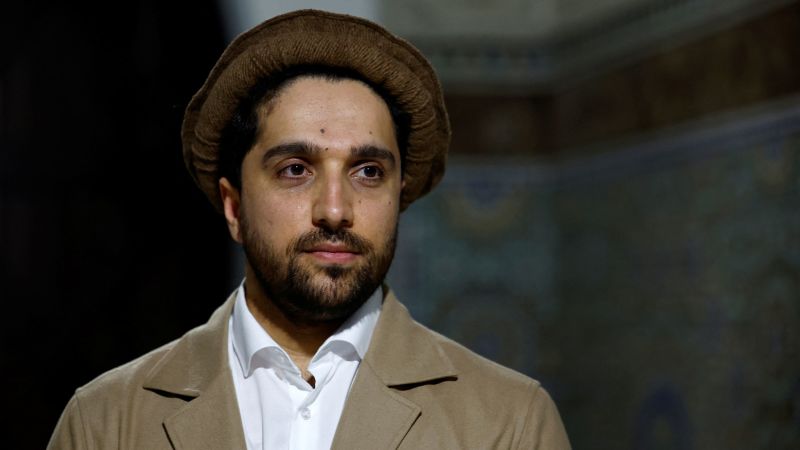Three years after the departure of the final US troops from Afghanistan, the country’s situation remains dire, with the Taliban exerting control and imposing oppressive laws that restrict freedoms, especially for women. Ahmad Massoud, son of Ahmad Shah Massoud, leads the National Resistance Front in defiance of the Taliban’s rule. Massoud acknowledges the challenges but remains determined to fight for the soul and future of Afghanistan against all odds.
Massoud’s resistance movement has carried out numerous military operations despite the Taliban’s dominance and limited international coverage. The group claims to have over 5,000 soldiers under their command and operates in various provinces. While the UN documented some anti-Taliban attacks, the true extent of the National Resistance Front’s operations is difficult to verify due to limited information and media blackout by the Taliban. Massoud believes the Taliban’s success was at the negotiating table rather than on the battlefield.
The withdrawal of US troops in 2021 is viewed as a betrayal by Massoud, who laments the lost progress and rights gained over the past two decades. However, he remains committed to the fight, coordinating military operations from an undisclosed location in Central Asia. Massoud emphasizes the need for a change in approach towards the Taliban and asserts that only power and force will compel them to change.
The National Resistance Front led by Massoud has been engaged in guerrilla operations and unconventional warfare since their inception in 2021. Despite the challenges of not controlling territory and lacking external support, the group remains determined to resist the Taliban’s oppressive rule. While facing a better-armed adversary, Massoud believes in the power of the will of the people to overcome material advantages.
Massoud’s vision for Afghanistan’s future is a democratic, decentralized, and pluralistic society where all citizens enjoy equal rights. He emphasizes the importance of creating a system that is resilient against extremism and responsive to the diverse needs of the Afghan population. Despite the Taliban’s current control and military superiority, Massoud remains unwavering in his commitment to fight for the nation’s soul and future.
In his book “In the Name of My Father,” Massoud lays out his convictions on democracy, women’s rights, and Islam’s role in Afghan society. He sees his work as a manifesto for Afghanistan’s future and a testament to the ongoing struggle for freedom. Massoud believes that Afghanistan’s path to peace and stability lies in the distribution of power and the unity of diverse political and civil groups against the Taliban. Ultimately, he envisions Afghanistan as a democratic beacon in the region, free from Taliban rule and on the path to progress.













